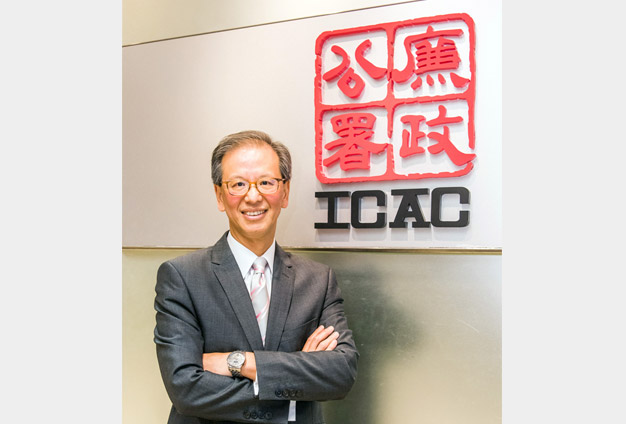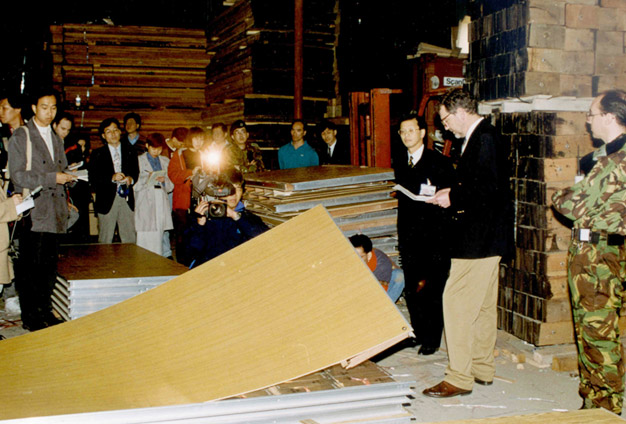“I am Ricky Yu Chun-cheong, Assistant Investigator of the ICAC. You are now under arrest for soliciting and taking bribes…” The foreman of the then Urban Services Department (USD) froze as money passed to him from an unwilling hawker selling piping hot sweet potatoes. He was caught red-handed. The hawker was frightened as he was the one who alerted the ICAC about the solicitation. But he was also overcome with relief, knowing that the extortion and bullying finally came to an end as the newly established agency had taken matters into its own hands.
Mr Yu vividly recalled his first arrest operation in a cold windy morning in 1979. Yet 39 years had slipped away in the twinkling of an eye. The then young Assistant Investigator had since promoted through the ranks to Director of Investigation (Government Sector), netting not only bribe-taking USD foremen but also corrupt senior management of listed companies and top government officials throughout his career as a graft buster. After almost 40 years in the battlefield, Mr Yu stepped down early this month. ICAC Post talked to him before he commenced his well-deserved pre-retirement leave.


Post: How would you describe Hong Kong’s anti-graft journey?
Yu: When I joined the ICAC in the 1970s, offering bribes to government officers was very common. In fact it was almost a “must” when applying for public services. Corruption was so prevalent that people had meekly accepted it as a part of their daily lives. At that time people were sceptical about the ICAC. No one thought it would last. But thanks to our robust anti-graft regime combining law enforcement, prevention and education, along with stringent legislation and public support, syndicated corruption in the public sector was eradicated by the 1980s. At the same time, we started to focus on private sector corruption. And people realised the ICAC meant serious business.
In almost 40 years, I witnessed Hong Kong being transformed from a corruption stricken backwater to an international financial hub renowned for its clean civil service and level playing field for business. The change didn’t come overnight. It was the hard work of graft busters from different generations spanning more than four decades and who shared one common goal. And I am proud to have played a role in realising this change.
Post: Can you share with us the most memorable case(s) you had handled?
Yu:I was very lucky to have taken part in some prominent cases in my career. Among them, the $8 billion cigarette smuggling case which spanned over 10 years from investigation to conviction would no doubt top the list. At one point, this “one-witness case” hit a dead end when the only witness was brutally murdered in Singapore. Although I was deeply saddened, I knew sorrow could not help bring the culprit to justice. The only way was to persist in an investigation, leaving no stone unturned.
Investigations involving senior government officials and prominent figures in the society presented challenges of a different level. Take the case of former Chief Secretary for Administration Rafael Hui Si-yan as an example. Given the sensitive nature of the case, only a small team of four investigators and our Chief Forensic Accountant handled the investigation at the beginning in order to keep things confidential.
I must hasten to add that each ICAC investigation was significant in its own way. Not all corruption investigations involved senior government officers or prominent personalities. But what appeared to the public as a “minor” case might impact greatly on people’s livelihood and as a professional law enforcement agency, the ICAC would handle every investigation with the same dedication and perseverance.